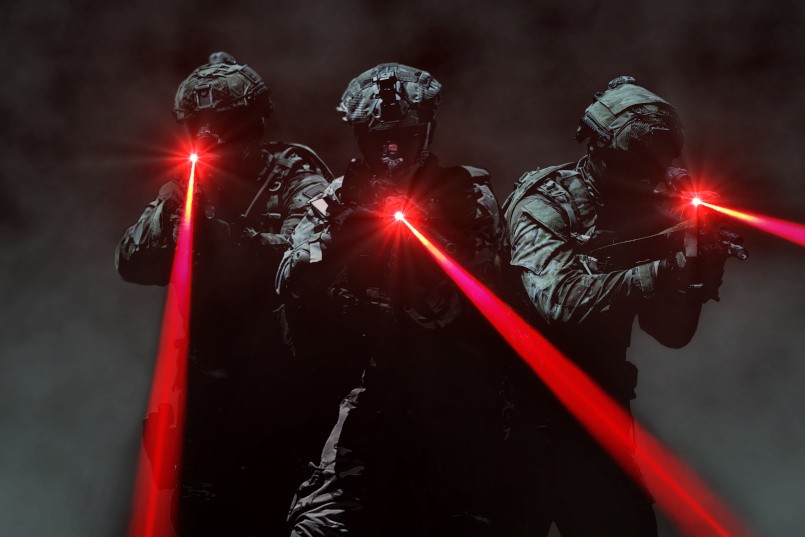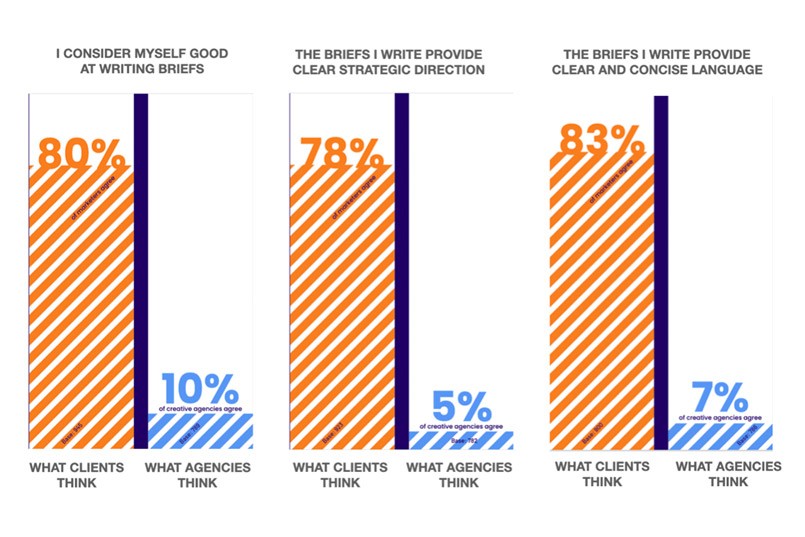Having spent over 25 years working in Asia on both the Agency side and the Client side, I’ve witnessed some pretty interesting behaviours from both inexperienced, often junior, clients towards their agencies, and also experienced, more mature clients, towards their agencies.
Culture has a significant role that comes into play in Asia, that’s for sure. However, no matter the culture involved, if you want to get great work from your agencies then you have to work with and motivate them. An agency can only be as good as the client!
So, what are three key challenges we see in Asia between less experienced and more experienced marketers in their interaction with agencies?
You can tell a lot by the way the agency gets briefed
It’s really important to spend the time getting the brief right and ensuring the agency has really understood what you’re asking them to do. When working across Asia this is especially important given language and cultural differences.
This is where you often see some terrible briefing from junior marketers. The list of requirements with respect to messaging can read like a shopping list, rather than focusing on a key message with support points. Also, support information tends to be either completely lacking or overwhelming.
Then, on the flip side is where the junior marketer asks the agency to write their brief, as they are too busy to do it!
More senior experienced marketers, on the whole, tend not to do this, as they understand the need to brief efficiently and give the agency focus. Though I have come across some, who, having been promoted from other divisions into senior marketing positions, do struggle. They have a lot of business experience but little idea of how marketing and advertising work, so problems can arise, especially with the brief and briefing process. Often, they will then take out their own lack of skill in this area by criticising/blaming the agency.
Having a standard briefing procedure in place that the whole team understand can help reduce problems along with appropriate training for the whole team.
What’s important to remember is that an agency can only be as good, creatively, as the client enables the agency to be! So, the pressure is on to get it right if you want to create the best opportunity for great work, whether we’re talking about a junior or senior marketer.
Treating agency people poorly
A challenging aspect of Asia is the tendency of clients to treat agency personnel often quite poorly, showing very little conscious or respect, making them work through the night/over weekends, for example. This is often driven by poor systems and behaviours within the client processes and approval timing, where the agency gets screwed at the end of the day, as there is no time left.
This is not going to create a strong working relationship at all, remember you are spending a lot of time and money with your selected agency and they are critical to your organisation achieving its growth agenda. So they need time and the client to have a business-like approach to an agreed approval process too.
Also, the way less experienced, junior to mid-level marketers treat agency people, is often different from experienced marketers.
When considering the many chemistry sessions TrinityP3 have run across Asia for clients as part of the pitch process, it’s really interesting to note the way a junior client will score an agency versus the senior client.
The junior client invariably will bring in to play how much they perceive an agency will be able to support their actual workload and less about the strategic or creative capabilities, which the senior client, quite correctly, focuses on.
The junior client is often looking for the agency junior members of the team to be workhorses, to offload their own work burden onto, so making their own job easier. Which in some respects is understandable to them as they are working like a workhorse themselves, in a workplace culture, where the boss is all-important and they carry out whatever is required from directives sent down the line.
In the hierarchy of command, the junior client is at the bottom…..but the agency junior team are at the absolute bottom!
If you want to focus the agency on the delivery of strategic and creative needs then you need to set out ways of working to help educate the more junior members of the team accordingly.
When I was running a large agency team in Japan, it was imperative to have an open and frank exchange with the senior client, that would bring issues like the above and their solutions, for discussion.
The result was a fantastic agency/client working culture that produced mutual respect, hard work and excellent creative work.
As one mid-level marketing manager said to me some years later, ‘you made my career, you showed me how working together with the agency as a team creates great work and great results’.
In three years, together, we’d taken a brand from 2% market share (where it was under consideration to be withdrawn from the market) to over 20% market share!
He got noticed by his superiors and promoted.
A question of different morals, different culture
Personally, I’ve never heard a senior marketing client say in a pitch situation, ‘I like the chemistry/fee proposal with Agency A, but prefer the creative from Agency B, so let’s just use the idea from Agency B, but hire Agency A.
Unfortunately, I have heard this suggested a number of times by more junior members in a client pitch team! Sad but true! Fortunately, it’s not been suggested by senior marketers or senior procurement for that matter….I think a combination of morals and legal issues are better understood.
If you want the idea but not the agency, then you need to compensate the agency to be fair to them. It still surprises me when I see a look of shock and indignation on the client’s face, then thankfully a realisation of what they had suggested was probably inappropriate.
This type of attitude/behaviour usually stems from a cultural base, where the value attributed to intangible assets such as creative ideas, or IP, is pretty non-existent or just not understood. Therefore, intangible things like creative ideas, are free for the taking…..right?
It’s not seen as stealing as it’s not tangible, so it doesn’t get treated the same.
The issue around not understanding the value or respecting intangible areas like IP, whether it be the consultancy work involved, the strategic or creative ideas generated, is something I experienced quite often with businesses with a traditional Chinese cultural outlook/Chinese family ownership. This can often run all the way through from senior to junior because of the power of the culture!
They just struggle to understand the value that should be attached to the consultants’ work and strategic and creative IP created. Some would say ‘but all I want is a name and logo (or picture)’.
Even where a fee was agreed at it was not uncommon that on successful completion that you wouldn’t get full payment, or you’d have to have more rounds of meetings than scoped, produce more rounds of strategic/creative ideas along the way, sometimes even change everything again at the last minute, as the absolute big family boss is finally shown the work!
You really have to be mindful of the client culture you are dealing with, then think about the fit with the agency culture, then if you proceed and it all goes ‘pear shaped’ be prepared to stop working with them, if absolutely necessary.
It happens. I’ve had to pull the plug for both the financial problems such clients created, as well as the sanity of the team that’s being put through the mill working in what becomes a quite toxic environment!
A final thought…
I think it’s fair to say that senior marketers can create the right structure with systems in place and training to help junior marketers develop and work effectively with agencies.
It’s a tough challenge for the marketing team that achieves that, if the corporate/family business culture doesn’t evolve or have the flexibility to allow marketing and its agency(s) to work together productively, effectively, creatively.
As it’s a prize worth fighting for it’s something that must be worked at, continuously over time, if you want to have your marketing team getting the best creative value out of the agency.
Remember, the agency can only be as good as the client will let them be. You can’t complain about the agency not being creative enough, if the problem sits firstly, with the marketing team and secondly, with the culture of the business itself!
If you’d like help re-evaluating your client/agency relationship, your marketing department’s systems and processes or Martech capabilities, to name just a few of our marketing management consulting capabilities, just reach out to us.
Good luck and remember, agencies really want to produce great work and great work produces stronger business results!
Our Engagement Agreements service is all about ensuring an agreed campaign development process is truly achievable and adhered to. Learn more here




